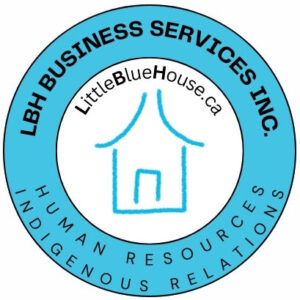Owners of small businesses are experts in their business. Managers in most organizations were promoted because they are experts in what they did before being a manager. Both owners and managers need HR support because they probably are not experts in human resources. To understand more about what HR does read my previous article “What is the role of human resources?“
Owners and managers need HR support because they may not be experts in people, corporate culture, work environment, and the laws of the land. These typically are all skills that have nothing to do with the actual “work” of the organization.
People Expert
Is your manager someone with extensive knowledge and expertise in understanding human behavior, relationships, communication, and organizational dynamics?
Do they have previous experience in fields such as psychology, human resources, coaching, counseling, sociology, or organizational development?
In their previous roles in your organization did they specialize in areas such as leadership development, conflict resolution, team building, emotional intelligence, or diversity and inclusion?
The base skills of a manager are the ability to provide guidance, support, and advice to individuals, teams, or organizations to help them navigate interpersonal challenges, improve relationships, and achieve their goals.
Corporate Culture Expert
A manager needs the skills of a Corporate Culture Expert who specializes in understanding, analyzing, and advising on organizational cultures. They use research methods such as surveys, interviews, and observations to assess existing cultures within organizations.
Do you know if your manager or potential manager can identify areas for improvement and develop strategies to cultivate a more positive and effective organizational culture?
A good manager may have a background in organizational psychology, human resources, sociology, or related fields.
Is your manager able to recommend changes to policies, procedures, leadership styles, and communication strategies to align culture with company values and goals?
As your organization grows can your managers assist with change initiatives, mergers and acquisitions, and resolve conflicts due to cultural differences?
Ultimately, a good manager can contribute to improved performance and the overall success of the organization.
Work Environment Expert
A good manager needs to have some skills of an actual Work Environment Expert, typically this is someone who specializes in understanding and optimizing the physical, social, and cultural aspects of workplaces to enhance productivity, satisfaction, and well-being among employees.
Managers with backgrounds in fields such as human resources, organizational psychology, industrial-organizational psychology, ergonomics, occupational health and safety, or facilities management may be better at their work.
Some responsibilities of managing a work environment may include:
- Assessing the workspaces to ensure they are conducive to productivity and well-being.
- Analyzing organizational structures, policies, and procedures to identify areas for improvement in employee engagement, communication, and collaboration.
- Conducting surveys, interviews, or focus groups to gather feedback from employees.
- Developing and implementing strategies to promote a positive work culture.
- Providing guidance on best practices for creating supportive and inclusive work environments.
- Recommending changes to workplace policies, procedures, and practices.
- Collaborating with other professionals, to create holistic solutions for improving the work environment.
Overall, a good manager plays a crucial role in helping organizations create environments that support employee well-being, engagement, and productivity.
Labour Law Expert
A good manager needs to have some skills like a Labour Law Expert. Experience with the legal framework and regulations governing the relationship between employers and employees within the workplace are an asset.
Processing of employment laws, regulations, and precedents relevant to a particular jurisdiction or country is also an asset. Typically, managers need a wide range of skills related to issues including hiring practices, wages, working conditions, discrimination, harassment, termination procedures, collective bargaining, and employee benefits.
A good manager can provide guidance to both employers and employees on compliance with labour laws, negotiate employment contracts, and mediate disputes.
Given the complexities of employment law and its implications for both businesses and individuals, managers need to consult with an HR professional as needed.
Learned Management Skills
Management skills are learned and can be taught! Any potential manager within the organization needs to get management training before getting promoted.
Any manager hired from outside the organization needs to vetted well. Did they take formal management training? If not, where they effective in previous management positions. Are they willing to take your management training before they get started?
Invest in Management Training
To have the best teams you need to have the best managers. This means you need to get some management training to your current and perspective managers.
This may be an investment of a few hundred dollars to a few thousand dollars. Take the time to search for the training that will suit your organization the best.
Invest in Good HR
If your organization is large enough and can afford an HR Advisor, then this person should be tasked with creating or finding the right training for your organization.
If your organization is still small, then you need to connect with and use the services of an outside HR Consultant.
If you need more advice, click here to set up a free consultation with Ian Hopfe!

